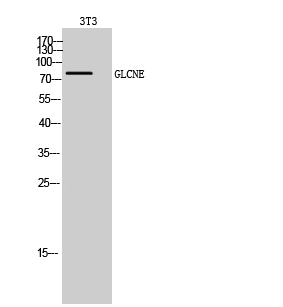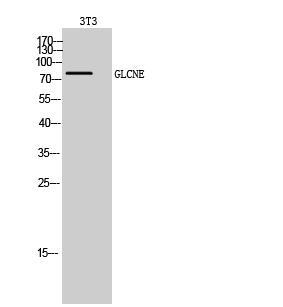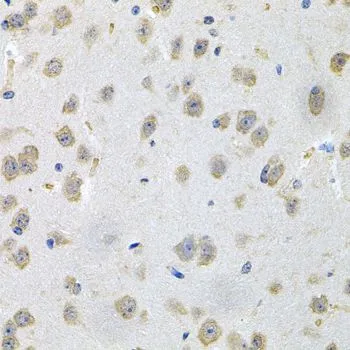
WB analysis of 3T3 cell lysate using GTX33966 GLCNE antibody.
GLCNE antibody
GTX33966
ApplicationsWestern Blot
Product group Antibodies
ReactivityHuman, Mouse
TargetGNE
Overview
- SupplierGeneTex
- Product NameGLCNE antibody
- Delivery Days Customer9
- Application Supplier NoteWB: 1:500-1:2000. *Optimal dilutions/concentrations should be determined by the researcher.Not tested in other applications.
- ApplicationsWestern Blot
- CertificationResearch Use Only
- ClonalityPolyclonal
- Concentration1 mg/ml
- ConjugateUnconjugated
- Gene ID10020
- Target nameGNE
- Target descriptionglucosamine (UDP-N-acetyl)-2-epimerase/N-acetylmannosamine kinase
- Target synonymsDMRV, GLCNE, IBM2, NM, THC12, Uae1, bifunctional UDP-N-acetylglucosamine 2-epimerase/N-acetylmannosamine kinase, N-acylmannosamine kinase, UDP-GlcNAc-2-epimerase/ManAc kinase, UDP-N-acetylglucosamine 2-epimerase/N-acetylmannosamine kinase
- HostRabbit
- IsotypeIgG
- Protein IDQ9Y223
- Protein NameBifunctional UDP-N-acetylglucosamine 2-epimerase/N-acetylmannosamine kinase
- Scientific DescriptionThe protein encoded by this gene is a bifunctional enzyme that initiates and regulates the biosynthesis of N-acetylneuraminic acid (NeuAc), a precursor of sialic acids. It is a rate-limiting enzyme in the sialic acid biosynthetic pathway. Sialic acid modification of cell surface molecules is crucial for their function in many biologic processes, including cell adhesion and signal transduction. Differential sialylation of cell surface molecules is also implicated in the tumorigenicity and metastatic behavior of malignant cells. Mutations in this gene are associated with sialuria, autosomal recessive inclusion body myopathy, and Nonaka myopathy. Alternative splicing of this gene results in transcript variants encoding different isoforms. [provided by RefSeq, Jul 2008]
- ReactivityHuman, Mouse
- Storage Instruction-20°C or -80°C,2°C to 8°C
- UNSPSC41116161






